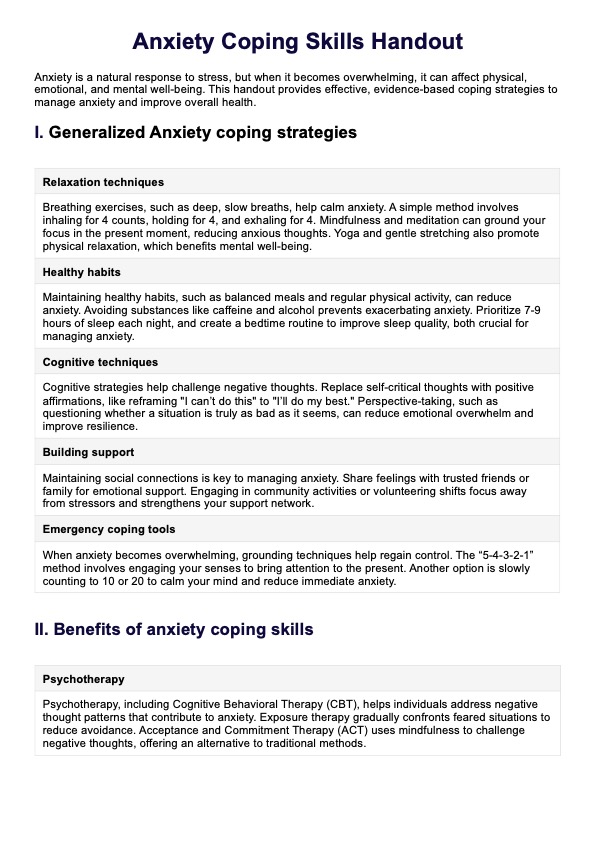The best coping skills for anxiety include deep breathing exercises, mindfulness meditation, and physical activities like exercise or yoga. These techniques help manage stress, calm the mind, and reduce the physical symptoms of anxiety.

Anxiety Coping Skills Handout
Discover effective Anxiety Coping Skills and strategies to manage and reduce anxiety. Learn the signs, causes, and treatments to improve mental well-being.
Anxiety Coping Skills Handout Template
Commonly asked questions
The 3-3-3 rule for anxiety is a grounding technique where you identify three things you can see, three things you can hear, and three things you can touch. This practice helps bring your focus to the present moment and reduces overwhelming feelings of anxiety.
To cope with bad anxiety, try engaging in relaxation techniques like deep breathing or progressive muscle relaxation to calm your body. It’s also helpful to challenge anxious thoughts by focusing on positive, realistic perspectives and seeking support from loved ones or a therapist.
EHR and practice management software
Get started for free
*No credit card required
Free
$0/usd
Unlimited clients
Telehealth
1GB of storage
Client portal text
Automated billing and online payments











